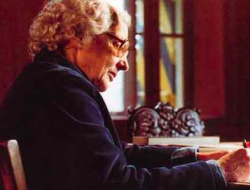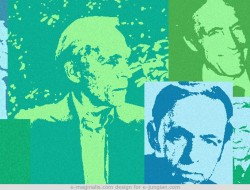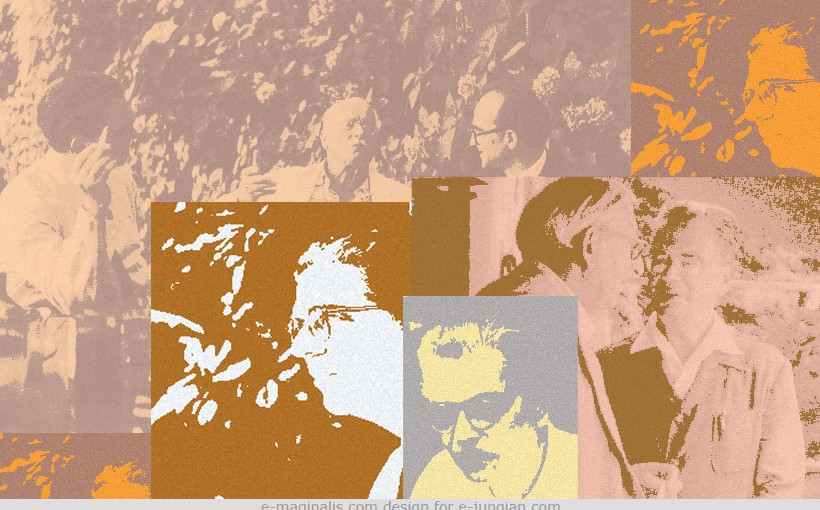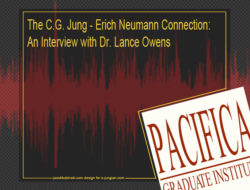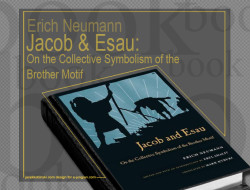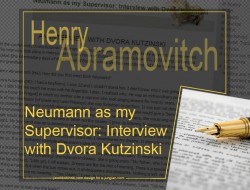Celebrating 100 Years of the Birth of Erich Neumann
the article republished thanks to courtesy of Henry Abramovitch
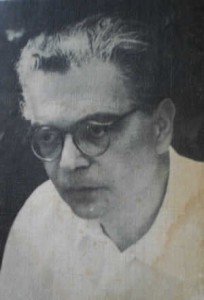 The Conference “The History and Origin of a Creative Man” commemorating 100 years of the birth of Erich Neumann was held on the 27th January 2005 at Kibbutz Givat Haim Ihud, in Israel. It took place in the presence of members of Neumann’s family and next to the Memorial House the for victims and survivors of Theresienstadt, the concentration camp where many prominent Jews perished.
The Conference “The History and Origin of a Creative Man” commemorating 100 years of the birth of Erich Neumann was held on the 27th January 2005 at Kibbutz Givat Haim Ihud, in Israel. It took place in the presence of members of Neumann’s family and next to the Memorial House the for victims and survivors of Theresienstadt, the concentration camp where many prominent Jews perished.
The title of the Conference, as devotees of Neumann’s work will recognize, is derived from the title of two of his major works: The History and Origins of Consciousness and Creative Man. Neumann was indeed fascinated by these two topics. Not only did he investigate the depth psychology of great creative individuals, but as Geula Gat says in her memoir, he truly was one himself.
The Conference was also memorable in another way. It was the first event in which members of all three Israeli Societies participated together since the triple split within the Israel Association of Analytical Psychology, which Neumann had founded in 1959. (For a discussion of the split with the Israel Association, see Abramovitch 2004). The conference was organized by the Israel Institute of Jungian Psychology, but intentionally included speakers from all three groups. For many Israeli analysts, it was the first time they found themselves sitting together in the same room and the atmosphere was one of warmth, acceptance and honouring our common ancestor. Therefore, the Conference was both a celebration as well as an opportunity for the beginning of healing.
This Special Issue of Harvest follows the Conference in arranging the papers into a historical section and a theoretical / clinical section. Erich Neumann’s daughter, Rali, herself a talented and experienced Jungian psychotherapist and chirologist gave an intimate view of “My Father, Erich Neumann.” Her brother Micah Neumann, who is a Professor of Psychiatry and a trained psychoanalyst, kindly agreed to include an English version of an article that was originally published in Hebrew and more recently in a German collection based on a conference “The Relationship between C. G. Jung and Erich Neumann according to their correspondence”. This paper includes many unpublished letters by Neumann.
Geula Gath arrived in Palestine around the same time as the Neumanns, following the rise of Hitler. She became a long time resident of a Kibbutz in the Galilee and an experienced child analyst. Given her advanced age, she was unable to attend and I read a paper she had prepared for an earlier memorial meeting. The article included in this Special Edition is a fuller version of the earlier paper.
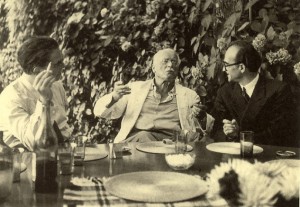
E. Neumann, C. G. Jung, M. Eliade
Dvora Kutzinski, Neumann’s leading disciple, President of the Israel Association and initiator of a training program after his death, spoke about “Neumann as My Supervisor”. An extrovert, Dvora Kutzinksi spoke spontaneously and without notes. Subsequently, she agreed to be interviewed. The full interview tells the dramatic story of the meeting between a young woman fresh from the death camps and a Wise Old Man (even if he was only 43). It recounts the remarkable evolution of their relationship from student to supervisee and ultimately, fellow analyst and friend, as well as her analysis with his wife, Julia Neumann. Her remarkable story reveals again and again the power of the unconscious in guiding our lives, especially in how her supervision with Neumann came to an abrupt end:
[In 1960,] I came as usual to him for my session but he was with another patient. “Excuse me. Come again next week.” he said. The next week, the same thing happens. He apologized again and I began to wonder what was going on. I arrive on the third week and he says, “I have analyzed what has happened and I realized you do not need supervision any longer. Twice I forgot. That means you have finished supervision. You are on your own.”
I began to beg him “It is just before your summer holiday, give me one more session. What is your hurry?”
He said, “You will be better off without me!”
A few months later, he was dead.
Dvora Kutzinski who was my teacher and control analyst, remains at 80 a vital person, an analyst, a supervisor, and a teacher. The interview for me was a symbolic closing of a circle.
The material presented in this Special Issue of Harvest, especially that included in the Historical Section, provide an intimate glimpse of a creative man at work and contribute to the beginning of a biography.
The bridge between Neumann the man, and Neumann the theoretician, is accomplished in the piece by Mario Jacoby, another creative and much beloved figure in the Jungian world. Jacoby describes the impact of Neumann’s lectures in Zurich on himself during his own training: “His main work, The Origins and History of Consciousness – Ursprungsgeschichthe des Bewusstsein – was in the late fifties a revelation for me, and I confess his writings touched me at times more than Jung’s. At the time, his new ideas and terms created considerable controversy and many doubted he really was a „true Jungian”.” Jacoby goes on to discuss the intellectual background to Neumann’s theory and compares his results and methodology to contemporary infant researchers, such as David Stern and others. Neumann’s work continues to attract critical, international attention (Zahn 1979; Samuels 1985; Weiler 1985; Vitolo 1990, 1996; Paglia 2006).

Erich Neumann at Eranos
Marian Badrian another leading German-born Israeli disciple helped reshape Neve Ze’elim Children’s Home. This is a unique residential Treatment Centre for Disturbed Children and Adolescent that was inspired by the ideas of Erich Neumann. This short account by Marian Badrian, as told to Henry Abramovitch, is the first article in any language to describe this unique place and venture and was prepared specially for Harvest.
The other three papers are by Israeli analysts, who, to use the biblical metaphor, did not know Neumann, but trained in his shadow. Avi Baumann’s presentation is based in part on a recently discovered German-langauge manuscript Beitrage zur Tiefenpsychologie des Judeischen Menschen und Probleme der Offenbarung [“The Jew in Periods of Revelation: Contributions to Depth Psychology”]. It was translated by Avi Baumann’s own father, Shaul Baumann (himself a refugee from Vienna to Palestine, in 1939). It is apparently the paper Rali Neumann refers to in her talk, which on advice from Gershom Scholem, he decided not to publish.
Avi Baumann shows how deeply and prophetically Neumann understood the dangers of a compensatory identification with the Land as part of Great Mother, hiding behind a patriarchal religion, which bedevilled our biblical ancestors as it still does contemporary Israelis. He also recounts Neumann’s deep respect and critique of Freud, something Kutzinski also emphasizes, as well as Neumann’s ideas on land, mysticism and peace, based on his Eranos lectures. (Neumann 1979; 1994).
Ruth Netzer’s paper, “The Paintings of Gustav Klimt: Death and the Maiden, and the Artist as Son-Lover” examines the work of this Viennese artist as a creative individual who exemplified the zeitgeist of fin de sieclesociety, as Neumann claimed artist do, with his intense even obsessive concern with women. She also goes on to brilliantly explore how Neumann’s notion of a son lover of the Great Mother goddess may be applied to Klimt and his work. Her paper continues the tradition that Neumann began in his cases studies of visual artists, such as Leonardo da Vinci, Henry Moore and Marc Chagall.
“They must have read Neumann!” the title of Rina Porat’s paper derives from the phrase that she repeatedly finds herself uttering upon seeing spontaneous creations in sandplay – so closely do these designs correspond to the stages Neumann described so well. Her paper convincingly demonstrates the continuing clinical relevance of Neumann diagnostically, in the process of therapy as well as understanding of the archetypal dimension of how the Self unfolds in play.
The final paper, “Erich Neumann and the Search for a New Ethic” is by the guest editor. It derives from my ongoing concerns with ethics matters (Abramovitch 1995; 2005; 2006a; in press) as a member of the IAAP Ethics committee and chair of the Committee preparing the interactive Case Book on Ethics & Governance. The article summarizes the key arguments in Neumann’s first published masterpiece, Depth Psychology and the New Ethic. The acknowledgment of one’s own evil is “good”. To be too good – that is, to want to transcend the limits of the good, which is actually available and possible, is evil. Evil done by anybody in a conscious way (and that always also implies full awareness of his own responsibility) can be ethically ‘good’ if the doer does not try to escape the responsibility. Repression of evil, accompanied, as it invariably is by an inflationary overvaluation of oneself is “evil”, even when it is the result of a “positive attitude” or a “good will”. (Neumann 1948 [1967] p. 114).
The article goes on to illustrate the passage from the old ethic via confrontation with the shadow, making use of Neumann’s lyric masterpiece, Amor and Psyche—The Psychic Development of the Feminine: A Commentary on the Tale by Apuleius.
This article was not presented at the Conference History and Origins of a Great Man. An earlier version of this article was presented at a Neumann memorial meeting organized by my colleague Yehuda Abramovith (no relation) for the Tel Aviv Chapter of the Israeli Psychiatric Association, at Kibbutz Shefayim, in February 2006.
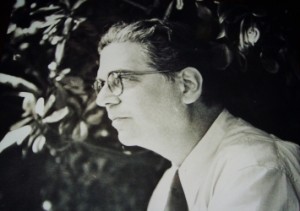
Most conferences come and go; and are then forgotten. Sometimes, conferences have an afterlife; they may even represent a turning point in the field of enquiry. The eminent social and literary critic, Camilia Paglia , author of the acclaimed Sexual Personae (Paglia 2000 ) chose Neumann as her theme for the “Otto and Ilse Mainzer Lecture Series” sponsored by Deutsches Haus at New York University in November 2005. She called her essay, Erich Neumann: Theorist of the Great Mother (Paglia 2006). She described coming to read him as a graduate student as one of ‘my central, galvanizing discoveries’. She foresees ‘that Erich Neumann is the key for a future incorporation of Jung with academic life…an accomplished culture critic whose synthesis of art, history, and psychology offers a more promising direction for cultural studies than current approved academic models…(Paglia 2006, p.10). Analyzing his style, she says, “I would call Neumann’s philology Frazerian. Like Frazer (whose “mass of ethnological material” he cites), Neumann creates a vast, dream prose-poem, with startling and sometimes bizarre material floating in and out.” (p. 12). Neumann’s scholarship is itself an art form based on his ‘deep knowledge and intimacy with the arts. He is the supreme exemplar of the Jungian flair for the visual image.” (p. 12).
At the end of her essay, she describes a riveting discovery:
While writing this lecture for the Mainzer Series, I found (though the magic of the Web) a rivetingly detailed article on Erich Neumann’s life and career by the Israel journalist Aviva Lori which was published earlier this year [28 January 2005] in the daily newspaper Ha’aretz. It was commission to coincide with a symposium held at Kibbutz Givat Haim Ihud to honor the centenary of Neumann’s birth. To my surprise and delight, a conference about Neumann, sponsored by the Austrian Association of Analytical Psychology, was also held in Vienna last August to mark that centenary. It appears that the Zeitgeist – a force that Neumann says drives creative artists – is preparing the way for a Neumann revival. (p. 14).
It is hoped that the publication of these papers from the conference, The History and Origins of a Great Man, will contribute to that Neumann revival.[1]
Many important original works by Neumann remain available only in German. These essays include certain Eranos lectures as well as his book on “Crisis and Renewal”. It is hoped that readers will be stimulated to read Neumann for themselves, both the poetic and accessible, Amor and Psyche as well as the deep and complex of The Origin and History of Consciousnesss. Neumann’s major works are available in English are listed below. In this way, his name will remain a blessing and a source of ongoing inspiration.
I would like to thank: Judith Wander who initiated the idea of a commemorative conference and served as Conference Director; Yehoshua Ziv and his lovely daughter Tamar who acted as our hosts at Kibbutz Givat Haim Ihud; Rali Neumann and her brother Micah and other members of the Neumann family who were in attendance and gave us firm support. Neumann brother and sister also gave us permission to use photos from their personal collection and Micah Neumann kindly allowed us to use the beuatiful water colour of “Joseph’s Dream” which his father painted for him as the front cover. Thanks is also due to who Mario Jacoby made a special trip from Zurich; all the authors and participants; Renos Papadopoulos, the Editor, and Andrew Samuels, the International Editor of Harvest who were enthusiastic about the project of publishing this Special Issue of Harvest from the outset; and finally Astrid Berg and the other members of the IAAP Executive who provided a grant to assist with the translation and preparation of the papers.
Henry Abramovitch
REFERENCES
Henry Abramovitch (1995). ‘Ethics: a Jewish perspective’ in Cast the First Stone: The Ethics of Analytical Therapy (eds. L. Ross & M. Roy) Boston: Shambhala. pp. 31-6.
Abramovitch, Henry (2004) ‘Rabban Gamliel & Rabbi Yehoshua in the Analytic Training Institute: A Talmudic Text (Berachot 27b-28a) and the Group Life of Analysts’. Journal of Jungian Theory and Practice. 6(2):21-40.
Abramovitch (2005). ‘Die Anregung ethischen Bewusstseins: Ein talmudischer Ansatz’ Analytische Psychologie 36; 140 (2) 123-6, 2005.
Abramovitch, Henry (2006a). ‘Stimulating ethical awareness during training’ Jungian Analytic Training for the 21st Century: New Contexts and New Directions. VIIth International Conference of The Journal of Analytical Psychology, McGill University, New Residence Hall, 16-18 June.
Abramovitch, Henry (in press). “Stimulating Ethical Awareness: a Talmudic Approach”, Journal of Analytical Psychology.
Abramovitch, Henry. (2006b). ‘Erich Neumann’ The Edinburgh International Encyclopaedia of Psychoanalysis. (Ed. R.M. Skelton). Edinburgh University Press.
Beebe, John. (1992). Integrity in Depth. College Station:Texas A. & M. Press.
Cambray, Joseph and Carter, Linda (Eds.) (2004). Analytical Psychology: Contemporary Perspectives in Jungian Analysis. Hove and New York: Brunner-Routledge.
Hillman, James. (1996). The Soul’s Code: In Search of Character and Calling. New York: Warner Books.
Hillman, James. (1996). The Force of Character and the Lasting Life. New York: Ballantine Books.
Neumann, Mica. (1988). ‘The Relationship between C.G. Jung and E. Neumann according to their Correspondence’ Sihot-Dialogue: Israel Journal of Psychotherapy 2(3): 157-171.
Paglia, Camille (2000). Sexual Personae: Art and Decadence from Nefertiti to Emily Dickinson. New York: Vintage.
Paglia, Camille (2006). ‘Erich Neumann: Theorist of the Great Mother. ARION 13(3), 1-14.
Samuels, Andrew (1985). Jung and the Post-Jungians. Routledge.
Stern, D. (1985). The Interpersonal world of the Infant: A view from Psychoanalysis and Developmental Psychology. New York: Basic Books.
Vitolo, Antonio (1990). Un esilio impossibile: Neumann tra Freud e Jung. Borla.
Vitolo, Antonio (1996). ‘Polytheisme des reves, besoins de laicite et de tolrance Freud, Jung et Neumann’ in Monotheismes et Modernites: Colloque International organize a L’Acroppolium de Carthage 2-4 novembre 1995. OROC et Fondation Naumann, 1996
Weiler, Gerda. (1985). Der Enteignele Mythos: eine notwendige revision der Archetypenlehre C.G. Jung und Erich Neumann. Frauenoffensive.
Wilmer, Harry. (1987). Practical Jung: Nuts and Bolts of Jungian Psychotherapy.
Wilmette, IL.: Chiron Publication.
Withers, R. (Ed.). (2003). Controversies in Analytical Psychology. Hove and New York: Brunner-Routledge.
Zahn, William (1979). Tracing the Development of the Ego in Walt Whitman’s Poetry in Correaltion with Erich Neumann’s “The Origin and History of consciousness”. State College.
MAJOR WORKS OF ERICH NEUMANN AVAILABLE IN ENGLISH**
Neumann, E. (1956). ‘Psyche and the Transformation of the Reality Planes’ Spring Analytical Psychology Club of New York.
Neumann E. (1959) Art and the Creative Unconscious: Four Essays. (‘Leonardo da Vinci and the Mother Archetype’; ‘Art and Time’; ‘A note on Marc Chagall’; ‘Creative Man and Transformation’). Translated by Ralph Manheim. New York: Pantheon Books, Bollingen Series. Reprinted in paperback as Harper Torchbooks. Harper & Row. 1966.
Neumann E. (1985) The Archetypal World of Henry Moore. Translated by R. F. C. Hull. New York: Pantheon Books, Bollingen Series.
Neumann E. (1959). ‘The Significance of the Genetic Aspect for Analytical Psychology’
Journal of Analytical Psychology 4(2): 125-138. Reprinted in Current Trends in Analytical Psychology. London: Tavistock Publications. 1961, pp. 37-53.
Neumann, Erich (1968). ‘Mystical Man’ in: The Mystic Vision, Ed. Joseph Campbell, 1968. Bollingen. Princeton: Princeton University Press.
Neumann, Erich. (1966). ‘Narcissism, Normal Self-Formation and the Primary Relation to the Mother’ Spring p. 81-106.
Neumann, E. (1969). Depth Psychology and a New Ethic. Translated by Eugene Rolfe. London: Hodder and Stoughton.
Neumann E. (1971) Amor and Psyche—The Psychic Development of the Feminine: A Commentary on the Tale by Apuleius. Translated by Ralph Manheim. Princeton: Princeton University Press, Bollingen Series.
Neumann E. (1972). The Great Mother: An Analysis of the Archetype. Translated by Ralph Manheim. Princeton: Princeton University Press, Bollingen Series.
Neumann, E. (1979). ‘On the Psychological Meaning of Ritual’ Quadrant: Journal of C.G. Jung Foundation for Analytical Psychology. 9(2): 5-34.
Neumann, E. (1979). Creative Man: Five Essays. ( ‘Kafka’s “The Trial”: An Interpretation through Depth Psychology’; ‘Chagall and the Bible’; ‘Georg Trakl: The Person and the Myth’; ‘Freud and the Father Image’; ‘C.G. Jung: 1955’). Translated by Eugene Rolfe. . Princeton: Princeton University Press, Bollingen Series.
Neumann, E. (1981). ‘The Mythical World and the Individual’ Translated by R.T. Jacobson. Quadrant: Journal of C.G. Jung Foundation for Analytical Psychology 14.
Neumann E. (1989). The Place of Creation. (The Psyche and the Transformation of the Reality Planes,” „The Experience ,” „Creative Man and the `Great Experience,'” „Man and Meaning,” „Peace of the Unitary Reality as the Symbol of Life,” and „The Psyche as the Place of Creation”–all originated as lectures at the Eranos Conferences in the years 1952 to 1960.) Translated by Hildegard Nagel. Princeton University Press. Bollingen Series.
Neumann, E. (1990). The Child: Structure and Dynamics of the Nascent Personality. Boston: Shambhala.
Neumann E. (1994). The Fear of the Feminine and other Essays on Feminine Psychology. (‘The Psychological Stages of Women’s Development’; ‘The Moon and Matriarchal Consciousness’; ‘On Mozart’s “Magic Flute” ‘; ‘The Meaning of the Earth Archetype for Modern Times’; ‘The Fear of the Feminine’). Translated by Boris Matthews, Esther Doughty, Eugene Rolfe and Michael Cullingworth. Princeton: Princeton University Press, Bollingen Series.
Neumann E. (1995). The Origin and History of Consciousness. Translated by R. F. C. Hull. Princeton University Press. Bollingen Series.
Notes:
**Note: The dates reflect currently available translations in English and not the order in which Neumann wrote and published in German, nor when they were first issued in English.
[1] I would like to thank my friend and colleague Professor Tamar Kron for calling attention to the Paglia essay. An English language version of the article on life and career of Neumann is available at www.ha’aretz.co.il/archive
See article at Henry Abramovitch website
See information about 2015 conference „The Jung-Neumann Letters”
 Henry Abramovitch
Henry Abramovitch
Professor Henry Abramovitch is a training analyst in IIJP and a member of the Ethics Committee of the IAAP. He is trained both as a clinical psychologist and anthropologist and was former President of the Israel Anthropological Association. He teaches at the Tel Aviv Medical School and is Mental Health Consultant to programs of American youth spending a year in Israel. He has written two book: The First Father and Sisters Keepers, Brothers Weepers, and many articles and book chapters on topics such as, ethics, temenos, transcultural issues, siblings, death and dying, as well as art and trauma. He has also edited a special edition of Harvest: International Journal of Jungian Studies on Erich Neumann, as well as a special edition of Transcultural Psychiatry on The Relevance of Jungian Psychology to Cross-Cultural Psychiatry.
Tags: Erich Neumann, Henry Abramovitch












